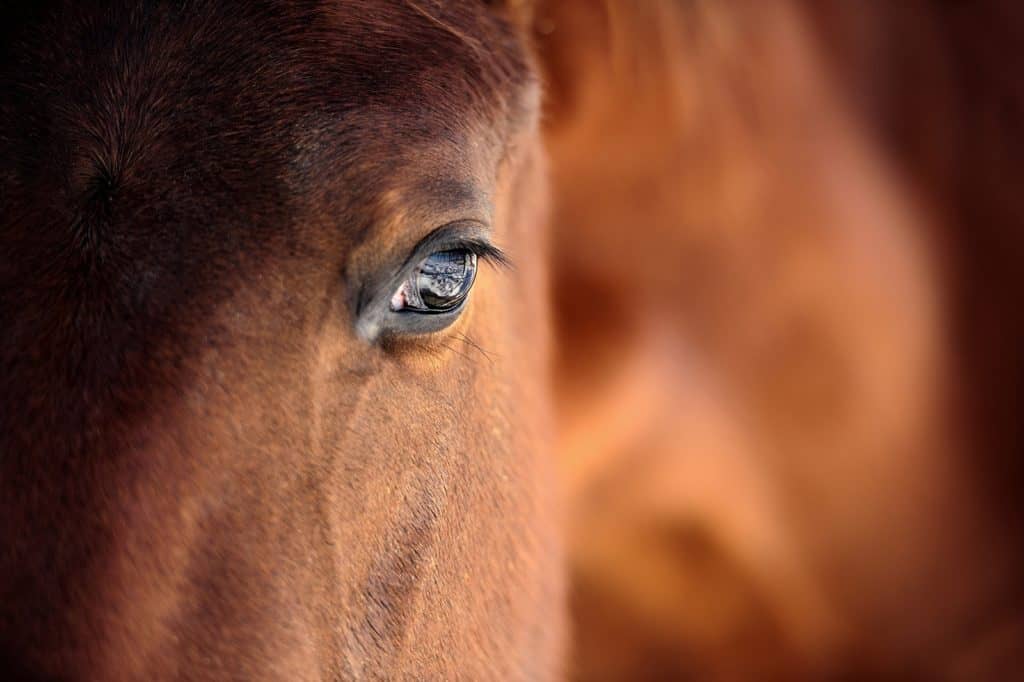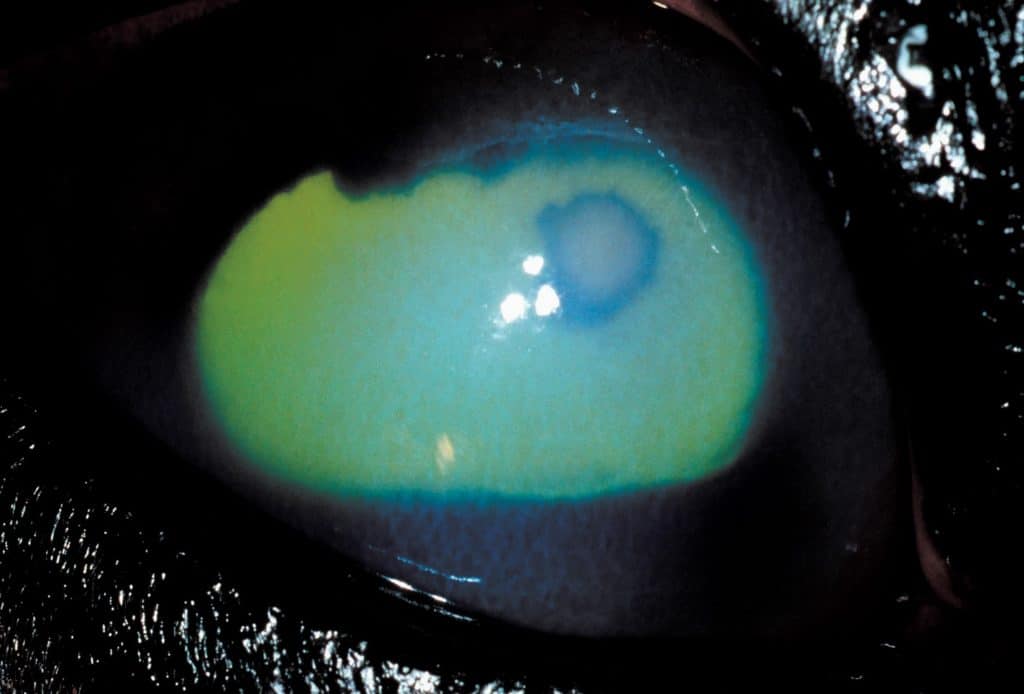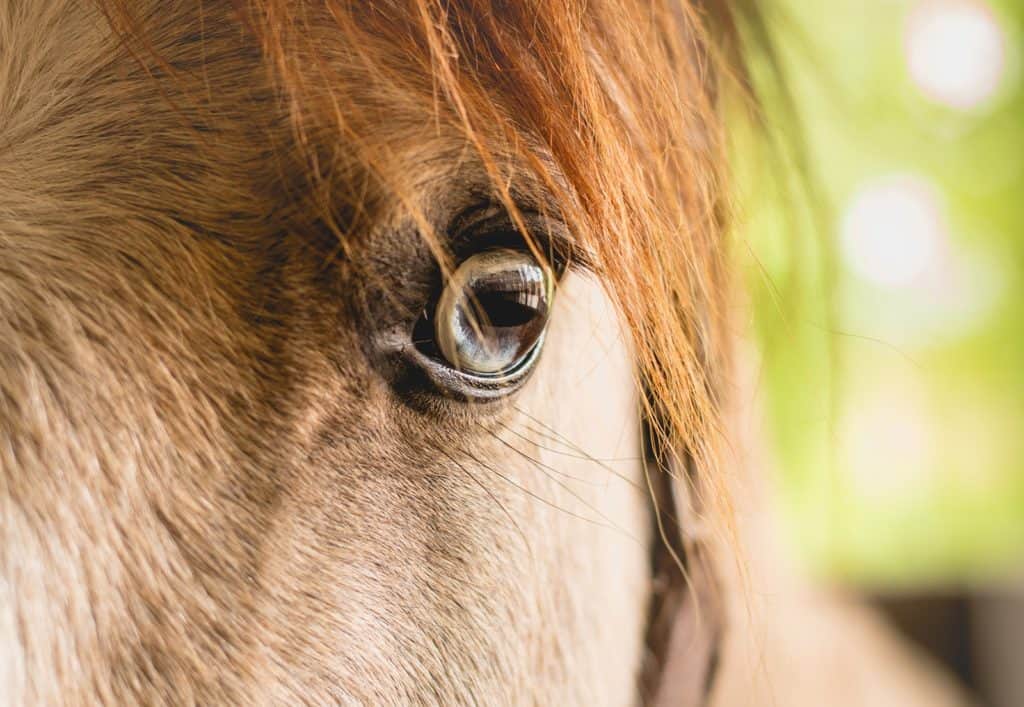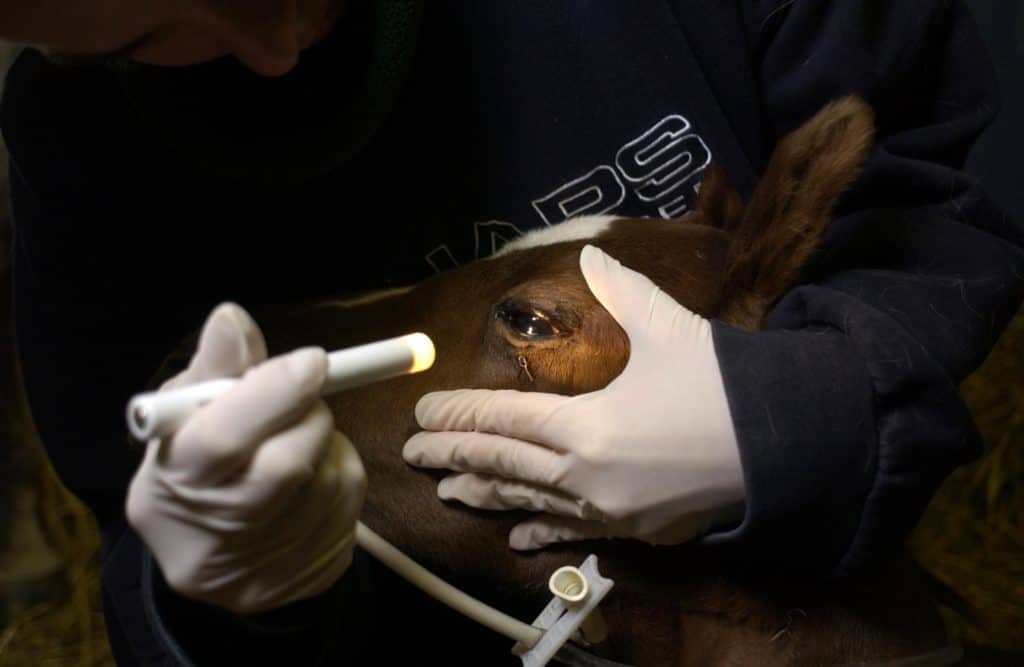A Prosthetic Eye for the Horse
Using ocular ultrasonography, he was able to diagnose complete retinal detachment with a large retinal tear. Because of the grave prognosis for recovery of vision, enucleation (removal of the eye) was recommended.
Using ocular ultrasonography, he was able to diagnose complete retinal detachment with a large retinal tear. Because of the grave prognosis for recovery of vision, enucleation (removal of the eye) was recommended.

Learn more about 10 conditions that can affect the horse’s retina and optic nerve.
My 20-year-old Appaloosa mare seems to have increasingly puffy, swollen eyes each spring and summer.

This blinding disease is caused by increased eye pressure.

ERU is one of the most frequent causes of equine blindness. Here’s what you need to know.

A cataract can partially or fully obscure your horse’s vision, but surgical treatment can be successful.
I was just informed that my young Quarter Horse needs to have his eye removed. What does this procedure consist of?

The corneal stromal abscess is a very serious and potentially vision-threatening condition in horses. Here’s what you need to know.

Corneal diseases can range from minor annoyances to serious problems resulting in blindness in horses.

Fungi live all around us, and they are capable of producing severe eye infections. Here’s what you need to know.

Quick attention to these infectious eye ulcers can save your horse’s sight.

Even small injuries to the horse’s eyelids are important and require veterinary attention. Here’s what to watch for.

Learn about some of the most common eye problems found in foals and how they can be treated.
Understanding how the horse sees the world can give horse owners an appreciation of their animals’ behavior. In addition to their reduced color perception (which makes certain color cues relatively useless), horses also have slightly poorer visual

Your veterinarian has an array of instruments and techniques for examining your horse’s eyes.
Surgery topics at the 2001 AAEP Convention helped the practitioner learn new techniques
Stay on top of the most recent Horse Health news with
"*" indicates required fields